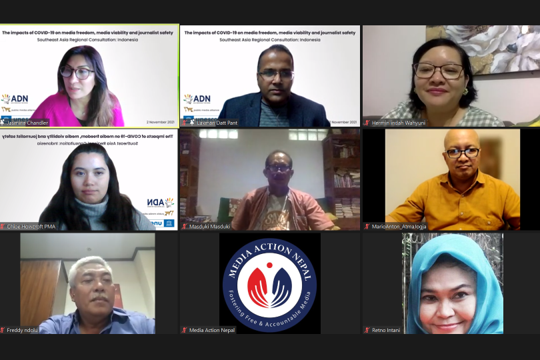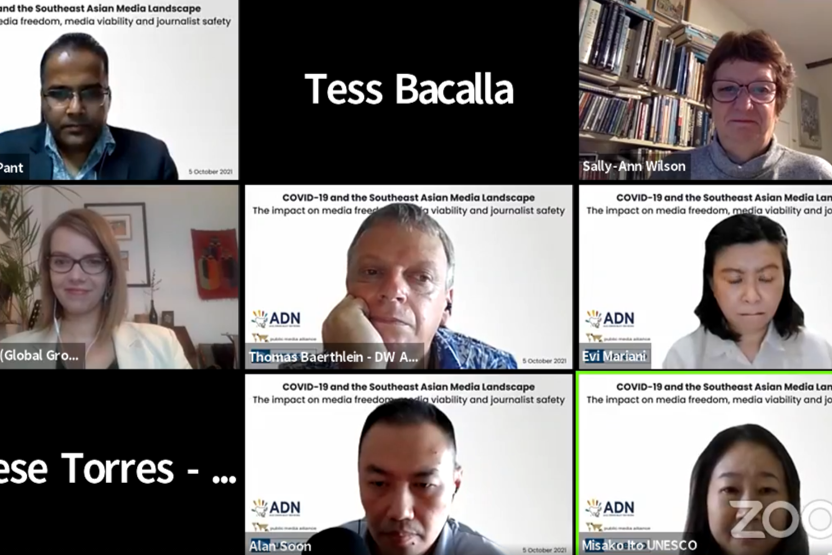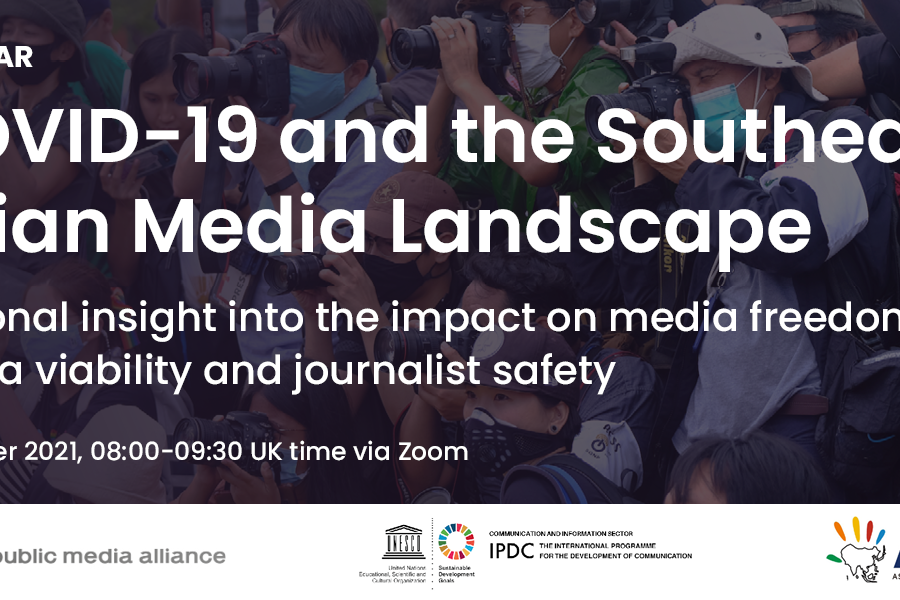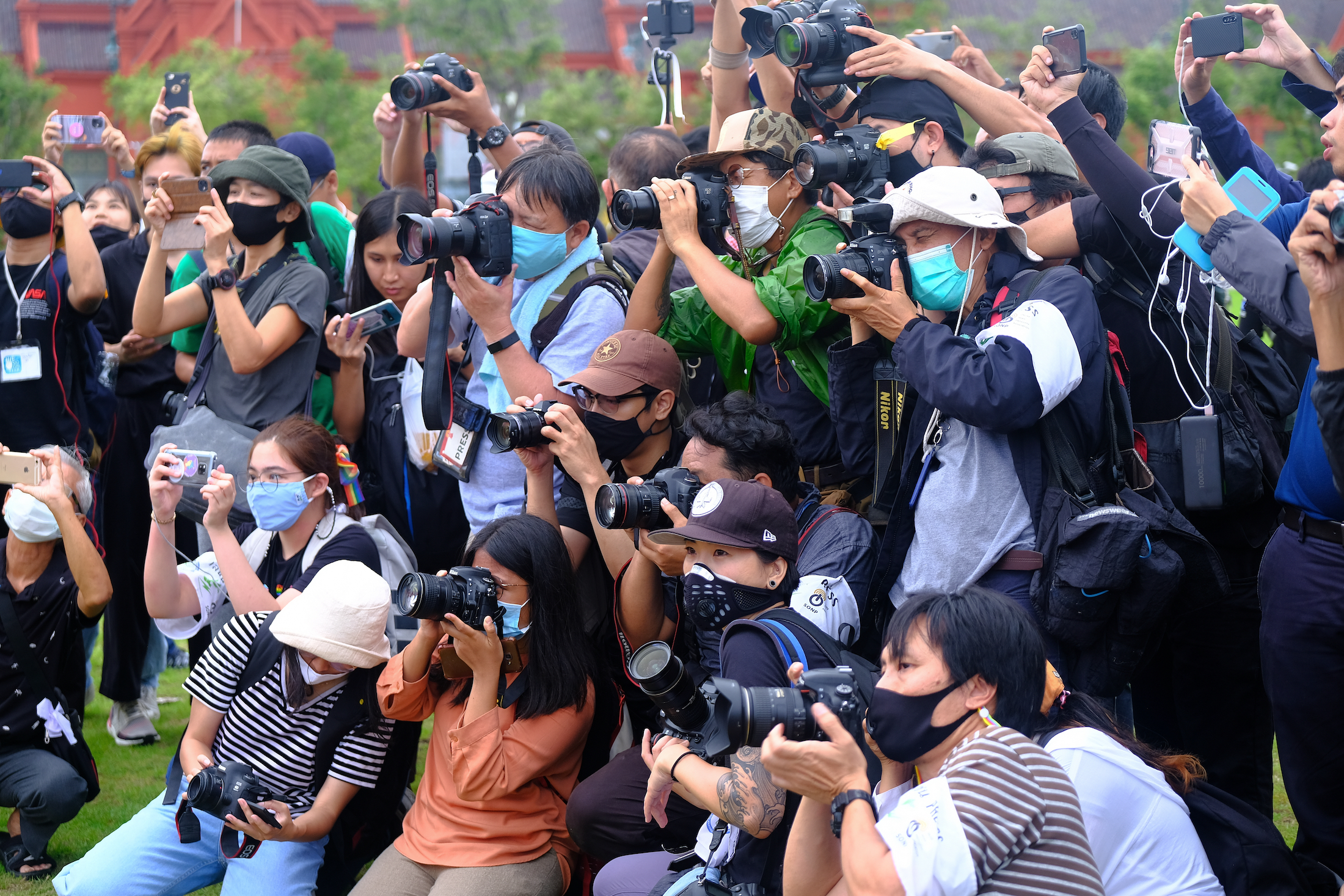SAVE THE DATE: Southeast Asia COVID-19 Situation Report and Media Recovery Plan
20th December 2021
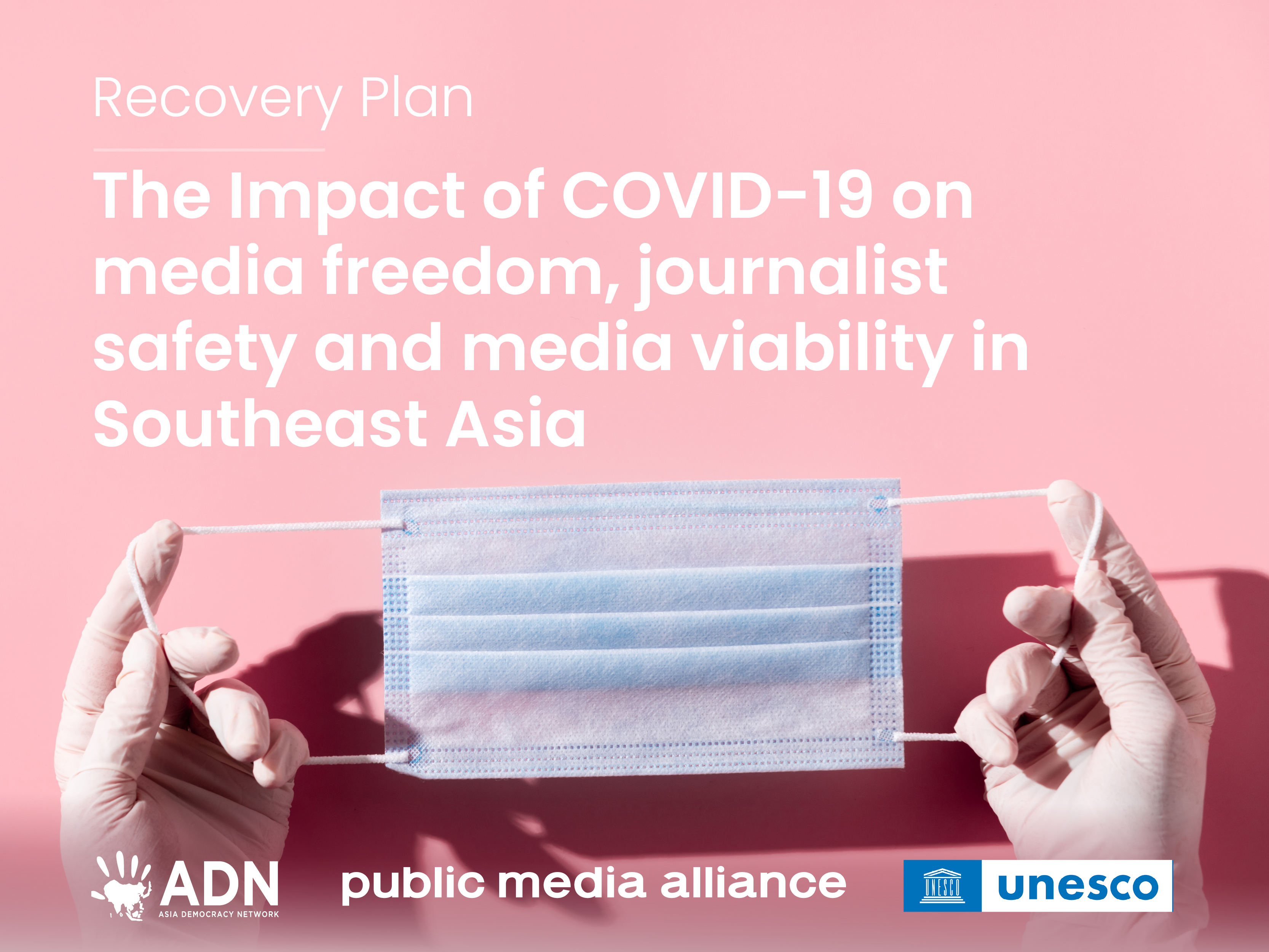
Over the past few months, the Public Media Alliance has been working alongside media stakeholders in Southeast Asia to develop a Situation Report on the key impacts of the COVID-19 pandemic on the region’s media landscape. The report will be launched on Thursday 20th January.
As COVID-19 restrictions were rolled out across Southeast Asia, the extent to which journalists and media practitioners could cover stories varied greatly. It was often the case that the health crisis was used as a pretext to curtail independent media and critical reporting.
The purpose of PMA’s regional consultation was to gain insights into the key challenges and threats imposed by the global health crisis on media freedom, media business viability and journalist safety in nine Southeast Asian countries: Cambodia, Indonesia, Malaysia, Myanmar, Philippines, Singapore, Thailand, Timor-Leste and Vietnam. The research is part of a regional project organised by PMA, in association with our local partner, the Asia Democracy Network (ADN); and with support from the UNESCO Bangkok Office and the rapid response mechanism of the International Programme for the Development of Communications (IPDC).
In a questionnaire conducted by PMA from 27 June to 22 August 2021 as part of the research, almost half of the 61 media stakeholder respondents based in the region strongly agreed that the COVID-19 pandemic has increased threats to journalist safety. The stakeholders included journalists, media practitioners, editors, media managers/owners, media academics, and media association representatives. The top three safety concerns included the fear of contracting or spreading COVID-19; trauma or stress related to the pandemic; and job insecurity or financial problems. Nearly a quarter of respondents experienced a salary decrease, while 14% lost their jobs. However, some (8%) received a salary increase, while more than a third (36%) shared that the pandemic had no financial impact on them.
The final Situation Report documents these insights and research findings from across the region. An accompanying draft Media Recovery Plan will also provide recommendations compiled during the series of consultation meetings with regional media stakeholders and researchers as to how to respond to these challenges.
READ MORE: Media experts address challenges facing Southeast Asian media landscape
The project’s co-facilitator, Laxman Datt Pant said, “The study about the media business viability and media freedom impacts of the COVID-19 pandemic for the Southeast Asia (SEA) media landscape is a timely intervention that alerts stakeholders about steps to be taken to improve the media freedom situation in the region. It recommends sustainable and effective standards for business viability, media freedom; and safety of journalists in SEA during and beyond the COVID-19 crisis.”
The project’s other co-facilitator, Tess Bacalla added: “Now more than ever, more coordinated and well thought-out initiatives are needed if the region is to reclaim its steadily shrinking civic space while journalism is being criminalised. This report, along with its proposed regional media recovery plan for media sustainability, is an earnest step in this direction.”
Both the Situation Report and the draft Media Recovery Plan will be made publicly available from 20 January 2022, during the launch event. The Media Recovery Plan will also be available in six languages: Burmese, Indonesian, Khmer, Malay, Tagalog, and Thai.
SAVE THE DATE
Date: Thursday 20th January 2022
Time: 08:00 AM – 09:00 AM (UK time)
Platform: Zoom
A registration link will be made available in early January 2022.
Related Posts
9th November 2021
Media experts address challenges facing Southeast Asian media landscape
Media experts from across Southeast…
8th October 2021
Media experts discuss the impacts of COVID-19 on the Southeast Asian media landscape
Media experts discuss the impacts of…
7th September 2021
Webinar: The Impact of COVID-19 on the Southeast Asia Media Landscape
Register now for our webinar on the…
29th April 2021
Project: The Impact of COVID-19 on Media Freedom, Media Business Viability and the Safety of Journalists in Southeast Asia
Our new project seeks to identify and…
